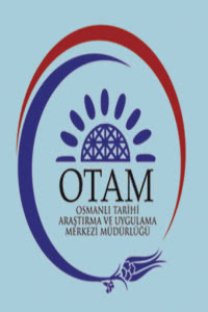Arnavut milliyetçi doktrininde Osmanlı İmparatorluğu’nun ve Avrupa’nın algılanışı
Perception of the Ottoman Empire and Europe in the Albanian nationalist doctrine
___
DJUVARA, T. G., Cent projets de partage de la Turquie (1281-1913), Librairie Félix Alcan, Paris 1914.FRASHËRI, S., Shqipëria, ç’ka qenë,ç’është e ç’do të bëhetë (Mendime për shpëtimt të mëmëdheut nga reziket që e kanë rethuarë), Bukuresht 1899.
EGRO, D., “Disa të dhëna të reja mbi fillimet e nacionalizmit shqiptar”, Studime historike, nr. 3-4 (2009), s. 5-17.
EGRO, D., “Ribërja politike e Ballkanit (shek. XVIII- fillimshekulli XX) dhe lëvizja nacionaliste shqiptare”, 100 years Albanian Independence, International Conference held in Tirana, Albania, 26-27 November 2012, Center for Albanian Studies – Institute of History, forthcoming.
ERDEM, H., “ ‘Perfidious Albanians’ and ‘zealous governors’: Ottomans, Albanians and Turks in Greek War of Independence”, Ottoman Rule and the Balkans, 1760-1850: Conflict, Transformation, Adaptation, Proceedings of an international conference held in Rethymno, Greece, 13-14 December 2003, eds. A. Anastasopoulos & E. Kolovos, University of Crete, Rethymno 2007, s. 213-37.
GUY, N., The Birth of Albania, I. B. Tauris, London 2012.
IKONOMI, I., Pavarësia: udhëtimi i paharruar i Ismail Qemalit, UET Press, Tiranë 2012.
JELAVICH, B., History of the Balkans (18th and 19th centuries), vol. I, CUP 1983.
MILLER, W., The Ottoman Empire: 1801-1912, Cambridge at the University Press 1913
PRIFTI, K., “Misioni i dy shqiptarëve në Evropë (Abdyl Frashërit dhe Mehmet Ali Vrionit)”, Studime historike, nr. 3-4 (2006), s. 131-48.
RAÇA, Sh., Marrëdhëniet shqiptaro-greke, 1829-1881, Instituti Albanologjik i Prishtinës, Prishtinë 1990.
SHUSHKA, Gj., Veprat e Naum Veqilharxhit, Ndërmarrja Botuese RILINDJA, Prishtinë 1994.
Wassa Effendi, Etudes sur l’Albanie et les albanais, Constantinople 1879 (Arnavutça edisyonu: E vërteta mbi Shqipninë dhe shqiptarët, Shtypshkronja “Tirana”, Tiranë 1935).
- ISSN: 1019-469X
- Yayın Aralığı: 2
- Başlangıç: 2006
- Yayıncı: Ankara Üniversitesi Osmanlı Tarihi Araştırma ve Uygulama Merkezi
Yanya Vilayetinin durumuna dair hazırlanan layihalar ve sonuçları
Religious Puritans in Sarajevo in the 18th century
Balkan Savaşları sırasında pomakların zorla tanassur edilmesi (1912-1913)
Circassian colonization in the danube Vilayet and social integration (preliminary notes)
Arnavut milliyetçi doktrininde Osmanlı İmparatorluğu’nun ve Avrupa’nın algılanışı
Berlin Antlaşması sonrasında Balkanlar’da Cemaat-i İslamiyelerin Teşekkülü (1878-1918)
